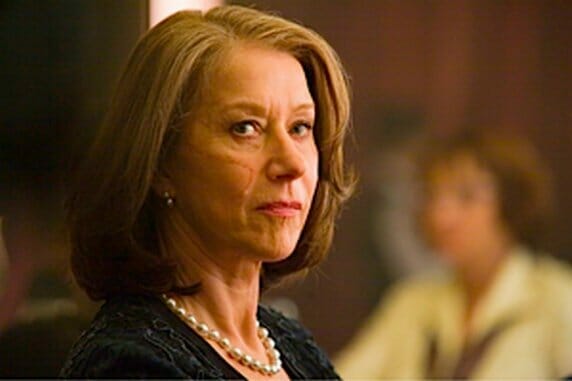
Aesthetically, The Debt hardly fails to satisfy. The urgent plot, convincing performances and sudden spurts of violence saturate it with an overwhelming amount of suspense that makes it far more exciting than most thrillers this year. Ideologically, though, it muddles the very message it seeks to unpack, trading moral value for entertainment value. And it’s that contradiction that keeps the film from creating the kind of vigor it longs for.
The story, taken from a 2007 Israeli film of the same name, weaves together two plots involving the same three people, Rachel Singer, Stephan Gold and David Peretz, in two different settings, 1960s Germany and 1990s Israel. The former centers on the individuals when they worked as secret agents in a scheme to bring a Nazi war criminal (a provoking Jesper Christensen) to justice. It follows the agents as they carefully execute their plan and, in the midst of it, form a love triangle. Jessica Chastain, who already wooed us in The Tree of Life, does the same here, albeit in a totally different manner, as the young Rachel. Her storm of emotions for Stephan (Marton Csokas) and David (Sam Worthington) give the romance substance and validity.
The combination of Chastain’s believability, which Csokas and Worthington provide as well, and the polished direction of John Madden—not the loudmouthed NFL commentator, but the guy who made Shakespeare in Love and Proof—make this thriller a sort of character study. Because of this, all the thrills and chills, not to mention the random bursts of violence, actually mean something because we care about the characters and their fate, particularly Rachel and David. Worthington finds a role in which he can act as a disgruntled Jew who lost his family in the war. Bent toward revenge and motivated by hate, his character depicts a post-war state of mind, putting into question the very concept of justice.
But when the spies’ duties come to an end and the film comes full circle to modern-day Israel, this view of justice, alas, gets spun on its head. In the latter plot, which we see a glimpse of in the opening sequence, Helen Mirren, who really doesn’t resemble Chastain, plays an aged Rachel. Now wearing a hideous scar on her face, an obvious symbol of what she experienced decades before, she carries a burden that goes far beyond her former work as a spy. It holds a certain weight that could only be formed from years and years of lies and secrets, all surrounding a single lie that’s shaped the very person she is, with the same being true for Stephan and David, here played intensely by Tom Wilkinson and Ciaran Hinds.
This conundrum rests at the core of the film and, before the contrived finale, seems to be its moral framework, the very concept it was build around. Through the lie that surrounds the three main characters, we obviously consider the enigmas and falsehoods of political heroism—specifically ways that history may be distorted—but moreover start to ponder the simple idea of truth. Such a practice brings to light the dark dangers of untruths, as well as the liberty that exists in confessing truth, whether difficult or not. Even more, all this underlines the reality and value of objectivity and morality, which is definitely a sign of hope in our nihilistic film culture.
That said, as profound and refreshing as this aspect of the film seems to be, it ultimately doesn’t mesh with the outcome of the story. In the unnecessary final act, Rachel goes on one last mission to assure that her secret doesn’t come out. While this plotline certainly makes for an entertaining ride, with intensity and suspense, its conclusion trivializes the moral message that before seemed so clear and prevalent. In an attempt to please the audience and feed their hunger for a false sense of justice—something he previously criticized—Madden sells out for a cheap ending. It doesn’t ruin his film but it does make it far less meaningful.